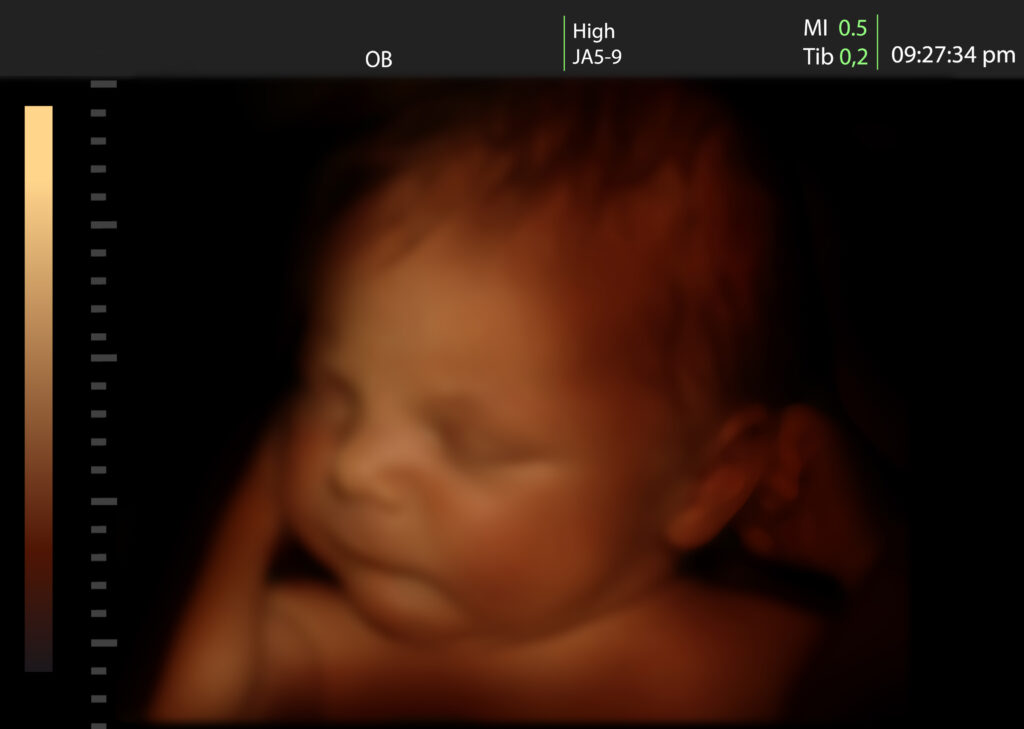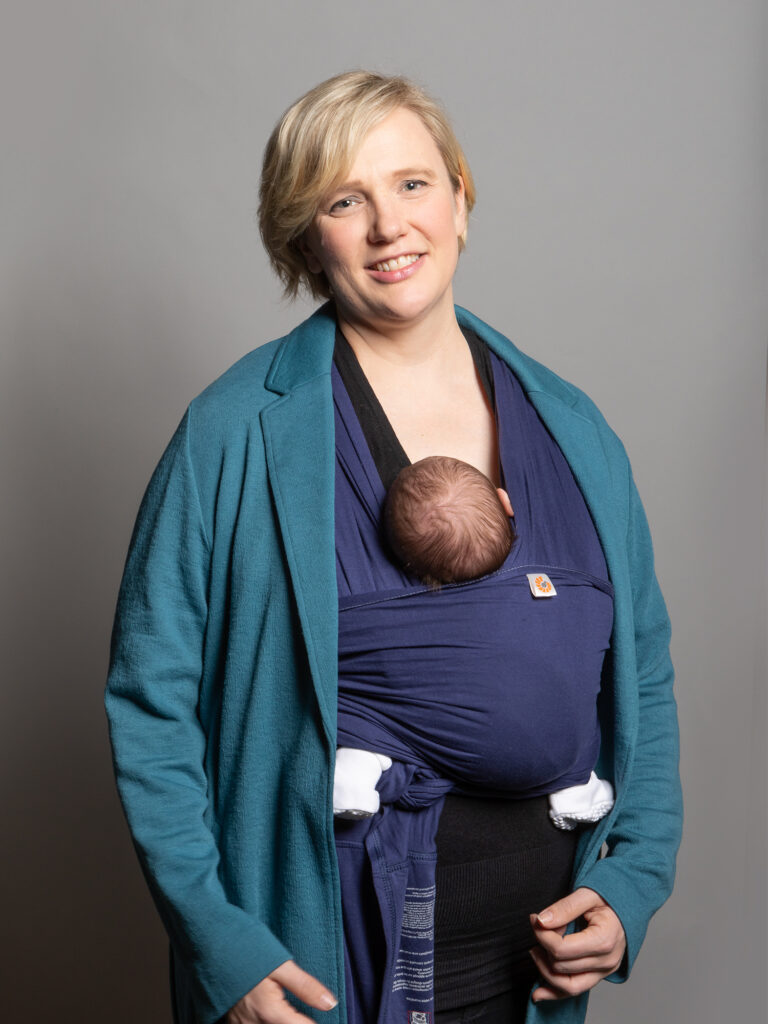- Parliament to vote on abortion-related amendments in the criminal justice bill which would change the UK abortion law for the first time in over 50 years
- Proposed amendment would in-effect decriminalise abortions up-to-birth
- Alternative amendment would lower the abortion gestational limit from 24 weeks to 22 weeks

LONDON (3 May 2024) – Members of Parliament will have the opportunity to change the UK’s abortion law this month for the first time in 56 years.
Amendments to the Criminal Justice Bill will be voted on 15th May, announced Penny Mordaunt, Leader of the House of Commons, yesterday. Several amendments have been tabled regarding abortion.
The UK’s current law, in effect, allows abortion to be widely accessed until 24 weeks (almost 6 months). The law further allows abortion up to birth under only three circumstances: namely, if the mother’s life is at risk, or if she is at risk of grave physical or mental injury, or if the baby has any disability (including Down Syndrome, cleft lip, and clubbed foot).
The general 24-week cap already places the UK’s limit far outside the average of most countries across Europe, including France (14 weeks) and Germany (12 weeks).
“The vote on 15th May will signal the biggest decision on UK abortion law for a generation. Our current 24-week cap is long-outdated in light of scientific data we now have about babies’ development in the womb, "
- Lois McLatchie Miller, Senior Legal Communications Officer for ADF UK
Opportunities to bring the law into line with Europe
Conservative MP Caroline Ansell (pictured right)’s proposed amendment would bring the UK’s law closer in line with the rest of Europe, by reducing the general limit from 24 weeks to 22 weeks.
This proposal is reflective of medical advancements within the last 50 years which allow babies to survive with support if born alive at 22 weeks.
70% of UK women support lowering the abortion limit from the current 24 weeks, according to polling from Savanta Com Res.
A second amendment, proposed by Conservative MP Liam Fox, would amend the law to protect children with Down Syndrome from being legally aborted up to birth – thus placing them on an equal legal footing with their peers.

Lois McLatchie Miller, Senior Legal Communications Officer for ADF UK, said:
“The vote on 15th May will signal the biggest decision on UK abortion law for a generation.
“Our current 24-week cap is long-outdated in light of scientific data we now have about babies’ development in the womb; as well as medical advancements that allow healthcare professionals to support babies to survive and thrive from as early as 22 weeks.
“At 22 weeks, a baby has eyelashes and fingernails. Her tastebuds are developing, her hair is beginning to grow, she’s sensitive to touch and studies show she can probably feel pain.
“Yet in the same hospital right now, there can be a baby at 22 weeks being aborted, and another baby at 22 weeks fighting for her life with the support of medical staff. Ideology aside, lowering the limit to 22 weeks is a humane step in the right direction, based on common sense.”
“In the same hospital right now, there can be a baby at 22 weeks being aborted, and another baby at 22 weeks fighting for her life with the support of medical staff. "
- Lois McLatchie Miller, Senior Legal Communications Officer for ADF UK
Two further amendments tabled to the same bill would push the abortion law in the opposite direction.
Attempts to decriminalise abortion up to birth

A third amendment, tabled by Labour MP Diana Johnson (pictured left), would in-effect decriminalise abortion up to birth, by removing laws which prevent women from self-performing abortions after 24 weeks gestation.
Johnson claims that her law would not impact the provision of abortion being generally capped at 24 weeks in a “healthcare setting”. However, since the majority of abortions now take place outside of a clinical setting, women would be able to take abortion pills at home at any stage of their pregnancy up to birth without committing an offence.
In practice, self-performed abortions in late stages of pregnancy could become increasingly common without deterrent laws in place. Due to to the “pills by post” scheme, women can easily obtain abortion pills without any medical examination by simply informing an abortion provider that they are less than ten weeks pregnant. Carla Foster, who made headlines last year after performing an illegal abortion on her 32-34 week-old baby, obtained abortion pills via pills-by-post by informing the provider that she was only 7 weeks pregnant.
A slippery slope
The serious medical and psychological risks involved with self-performing abortions at late term would likely put pressure on the government to further liberalise the law again, permitting providers to perform abortions up to birth in a clinical setting.
The proposal could therefore become a first step towards legalising abortion up to birth in all circumstances in the UK.
Louise McCudden, Head of External Affairs at MSI Reproductive Choices (Marie Stopes),told Cosmopolitan Magazine that Johnson’s amendment is “the first milestone towards ultimately decriminalising abortion completely”.
The move to decriminalise abortion up to birth is out of step with public sentiment. According to recent polling, over half of Brits agree that it should remain illegal for a woman to abort a healthy baby after the current 24-week time limit. Fewer than one in six agreed with the plans to decriminalise abortion.
Removing key safeguards to protect baby girls
Yet another amendment to the Criminal Justice Bill, tabled by Labour MP Stella Creasy (pictured right) and also likely to be voted on on 15th May, would remove key legal deterrents which prevent women from self-performing abortions at home in the late stages of pregnancy.
Creasy’s amendment further would remove current safeguards in place on abortions prior to 24 weeks, resulting in the legalisation of sex-selective abortion, which is currently not permitted as a ground for abortion in any circumstance.
In 2018, Labour MP Naz Shah, shadow women and equalities minister, campaigned to end the illegal use of sex-selective abortion against baby girls in some communities in the UK with a tradition of son-preference. The practice has been banned in India and China.

Lois McLatchie Miller, Senior Communications Officer for ADF UK, said:
“Our current law is wildly out of step with the rest of the world. Our 24-week limit sits at almost double that of most European countries, including Germany (12 weeks) and France (14 weeks). Yet, unbelievably, some parliamentarians want to make our law even more extreme.
“Abortion up to birth is no win for women. Carla Foster, who notably performed an abortion on her 32-34 week ‘haunted’ by the horror of what happened. Late stage abortions carry far greater risk to the mental and physical health of a woman; let alone, end the lives of viable, fully-developed babies who could survive outside the womb if given the chance to live.
“A humane society prevents this horrendous trauma. Rather than late-stage abortion, women and their babies deserve better care and support to survive and thrive,” added Lois McLatchie Miller.
Images for free use in print or online in relation to this story only
Pictured: Lois McLatchie Miller, ADF UK


